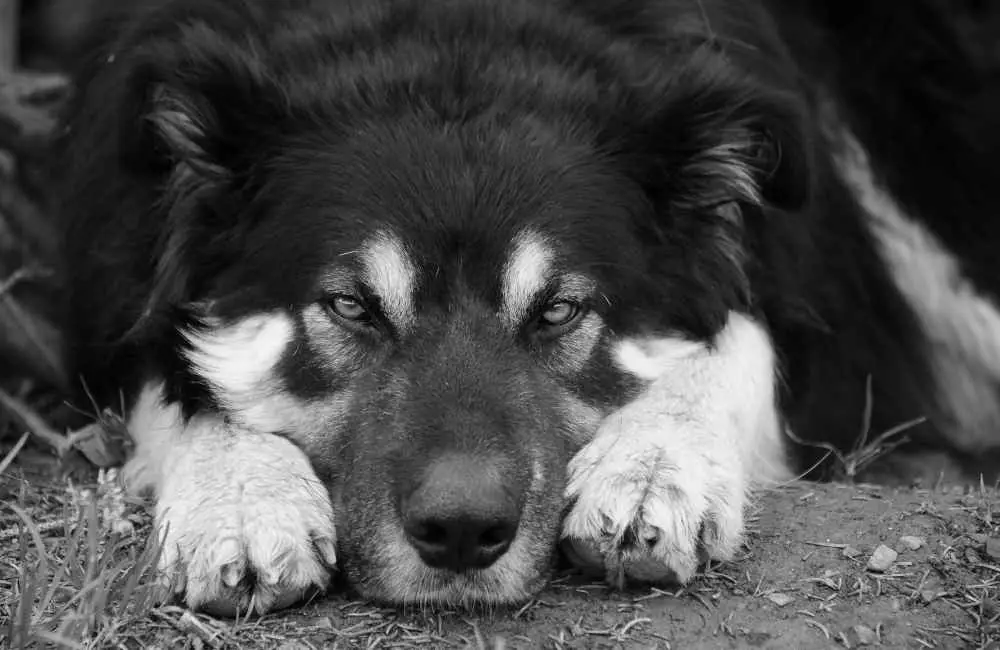Death is the most common part of life, and every living thing you know will one day go through it, including our beloved dogs. Experiencing loss of a pet is truly one of the most difficult times in one’s life, and most would say it is similar to losing a partner, or a child.
If you have recently lost a dog, know that you are not alone and there are many dog parents out there who are going through the exact same thing, and very likely some at this exact same moment.
Wondering if you should get the same breed as your dog that has passed, regardless of whether it was a recent passing or a long time ago, is very common too.
In this article, we will weigh the pros and cons of getting the same breed to help you decide.
Pros
You will be familiar with the breed.
Dogs, even though they are completely unique and no two dogs are exactly the same, may have similar traits with other dogs of the same breed. Some dog owners have preferences when it comes to dog breed. They would only choose one or two breeds that fit perfectly in their lifestyles, and would get the same breed over and over again throughout their lifetimes.
If you enjoyed the traits of your old pet and would love to experience a similar temperament, drive, and energy range again, then getting the same breed would probably do you good.
Additionally, you might be one of those people who are quite anxious to try caring for new dog breeds. Getting the same breed will be more comfortable for you and you will also be quite familiar with some of their tendencies. For example, Beagles are one of the most social breeds of dogs, and if you want another social dog, another Beagle is your best bet.
Your household might prefer it more.
Let’s state the obvious first: this is your dog, and people who do not own this dog don’t have a say on whether you should get the same breed or not. But there’s another truth to face: if you live with people (family, friends, housemates, etc.), you might want to consider their preference too since you are sharing a space. It’s only polite!
Even if they are not caring for this dog or do not have responsibilities over it, you might want to evaluate if they did enjoy or were comfortable being around your previous dog. Were they scared of it, or mean to it? Did they absolutely love it and even dog-sat for you sometimes? Depending on your answers, evaluate your situation.
If you come up to the conclusion that they did enjoy the breed a lot, then that’s one part of the decision-making you don’t have to think about for now.
It might help you if you are still grieving.
Your dog may have passed very recently, but don’t feel bad about thinking of getting a new one right away.
Some people have said that getting a new dog of the same breed right after the passing of their previous one helped them a lot in their grieving process. Of course, dogs can never be replaced (and “replace” is such a strong word!), so getting one while you’re grieving isn’t really an attempt to replace them.
You don’t have to feel bad about making this decision, as people are unique and may have different perspectives and ideas of grieving than you do. So if you feel like you will feel less alone or depressed while you’re grieving and only a new best friend will help you, then go for it.
It might help your other furry pets.
Believe it or not, if you have other dogs who were very close with your dog that has passed, they can experience grieving too.
According to this article from the American Kennel Club, dogs may show certain behaviors that could be signs of grieving, and you should watch out for them. Some of them are social withdrawal, being a bit talkative or howling more than usual, and not eating or drinking right.
If your other living dogs are exhibiting these signs, there’s a chance they are grieving with you and would be better off with a new friend to play with. Although dogs are smart and will be able to instantly tell that your new dog isn’t their old friend, the new dog will be able to get them curious enough to start a new friendship and help them through their grieving process, even better if they look like their old friend!
Cons
You might have unrealistic expectations and be disappointed.
If you are getting the same breed to try and “replace” your old best friend, with the assumption that they have the exact same tendencies, quirks, energy, mannerisms, habits, etc. even to the extent that you are expecting it to be the exact same dog, you will be gravely disappointed.
Like mentioned above, dogs are absolutely unique and no two dogs are the same. With humans, two people can come from the same race, nationality, ethnicity, age group, bloodline, etc., and they would still be two entirely different people and have nothing else in common. It’s unfair to expect it would be any different with dogs.
It might be painful if you are still grieving.
Contrary to one of the pros, getting a new dog of the same breed while you’re still grieving may be extremely painful to you. You might mistake the new dog for the old dog more than a couple of times in a day, and sometimes seeing them go about their day might make you miss your old best friend more than you already do. Some people completely avoid getting the same breed because they couldn’t bear the pain of seeing them and getting a constant reminder that their old pet is gone.
Only you can tell this for yourself. Do you get confused easily? If you’ve had someone or another pet that has died, do you sometimes forget that they have already passed? If you see someone that looks like them, how do you react? Those should be a couple of cues that would be able to tell you if getting a new dog of the same breed is going to help you or cause even more pain.
You will be missing out on other great dogs.
Sometimes, when you deliberately stick to one thing because it is your comfort zone, you might be missing out on other things that you didn’t even consider. This is the case with most things, and this is also the case with owning a pet.
Most people don’t realize they love dogs until they take care of one or have been around one. You might not realize that another breed could perfectly fit in your lifestyle if you haven’t experienced taking care of them, or haven’t researched enough about them.
This is not to say that getting the same breed over and over again is wrong. You will just have more opportunities to get to know many other breeds of dogs if you open yourself up to the idea. If you get out of your comfort zone and explore other breeds that are accessible to you, you might just meet your new best friend sooner than later!
It might have the same issues as your previous dog.
Some dog breeds have common medical issues. For instance, pugs tend to commonly have skin infections, and breathing and eye problems due to the structure of their faces and heads. If you are still doing financially well then this won’t be an issue to you, and the upside is you’d be helping a dog.
However, consider your financial health and overall situation in life. Would you be able to continue living comfortably while caring for a dog with potential medical issues? Would you still have enough time to give ample attention to this new dog that would require constant care and trips to the vet? Think about your answers to these questions and think hard, because the last thing you want is getting a new dog and not being able to provide for its needs.
Verdict
At the end of the day, only you know yourself and/or your household enough to make this decision. The pros and cons listed in this article are crafted to nudge you to the right path and help you with this somewhat difficult decision.
However, always remember that neither is inherently the wrong or right decision. The right decision is the one you pick that would help you through the grieving process.
You May Also Like:


